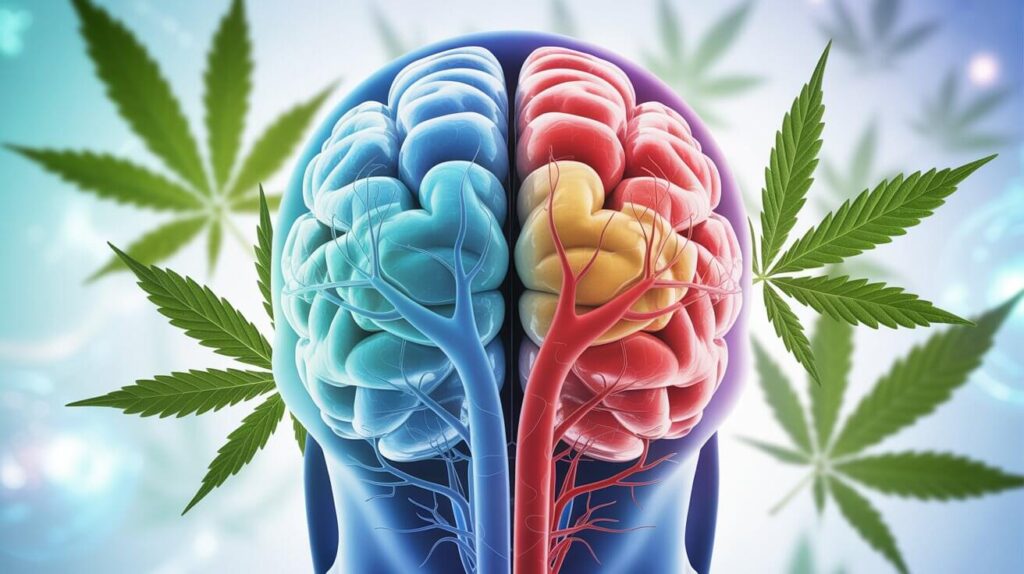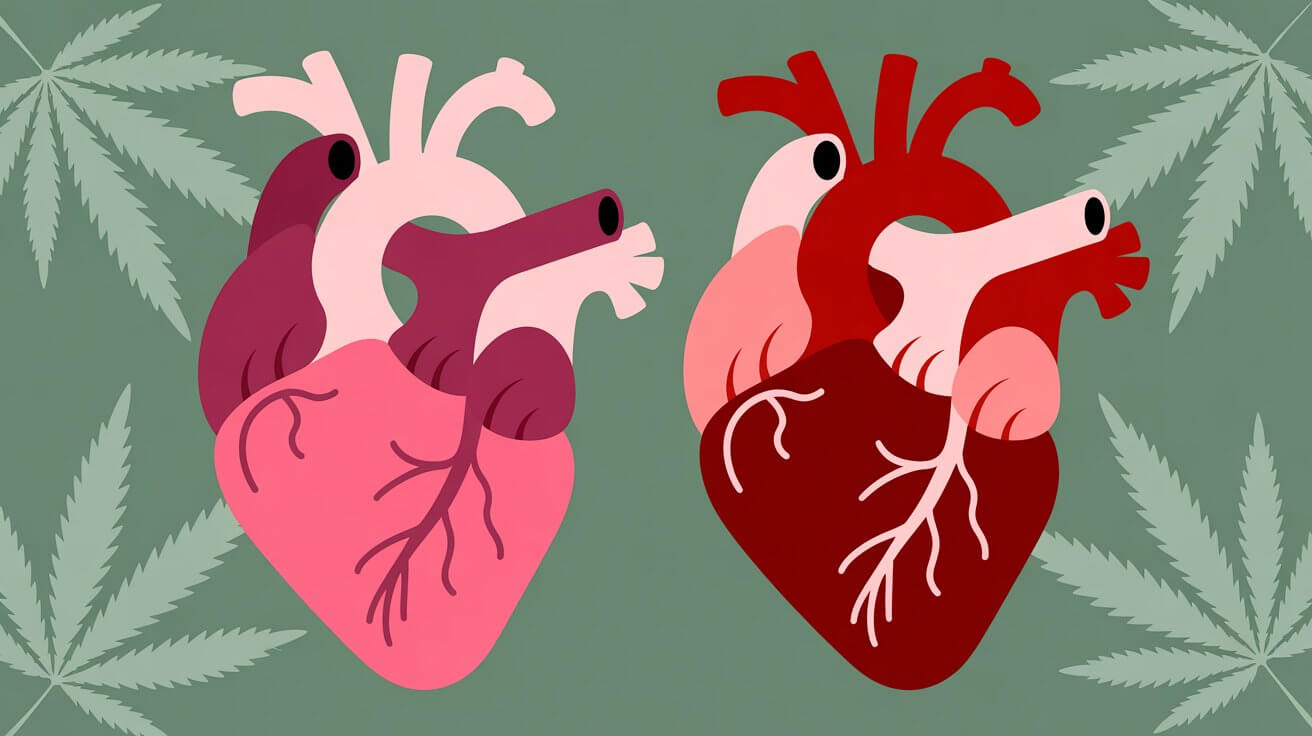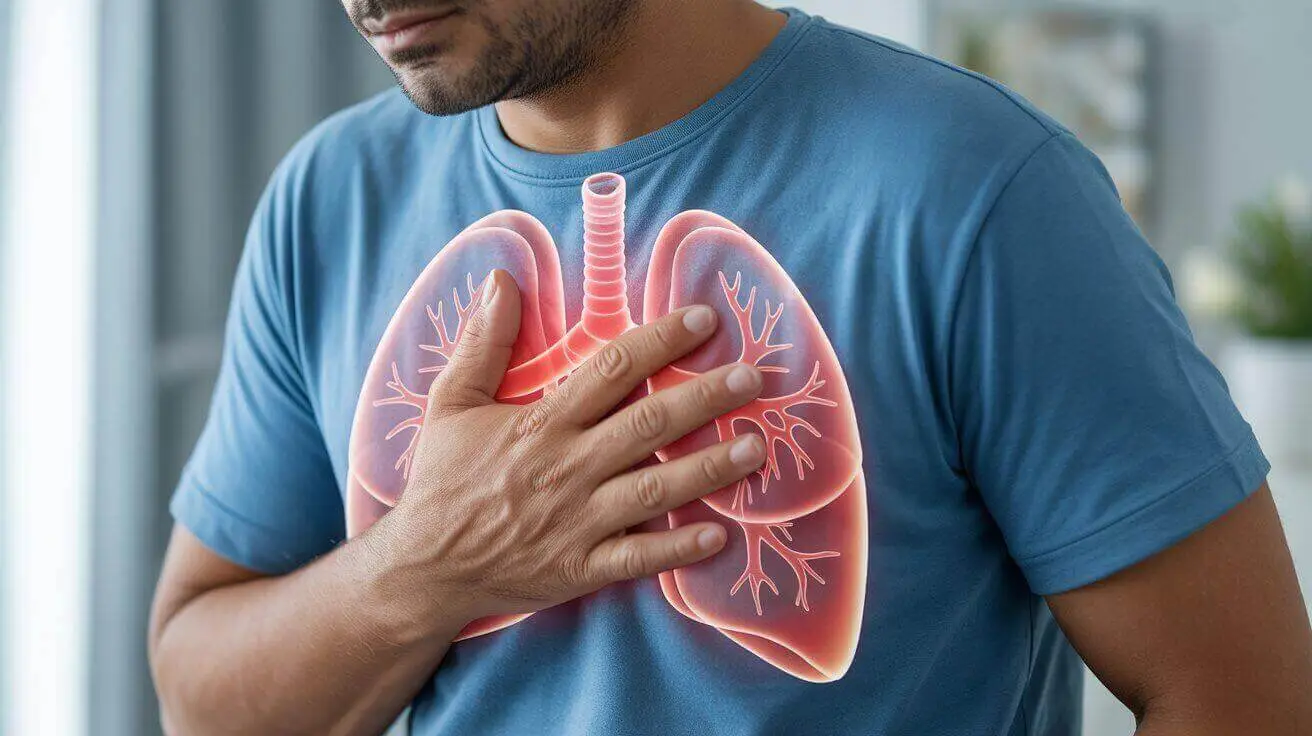It’s a scenario that’s become increasingly common across the United States. A long, stressful week is finally over, and to unwind, you reach for a cannabis edible or decide to smoke a joint. It feels like a harmless way to relax, a natural alternative to a glass of wine. For years, the conversation around cannabis has been dominated by its potential therapeutic benefits and its relative safety compared to other substances. But what if that sense of security is overlooking a crucial piece of the puzzle? What if this popular plant has a hidden, and potentially serious, impact on our most vital organ: the heart? The emerging evidence on the cannabis heart attack risk is something everyone should be aware of.
Recent scientific evidence is beginning to paint a more complex picture, suggesting that the relationship between cannabis and cardiovascular health is not as benign as many believe. As cannabis becomes more accessible and its use more widespread, it’s essential to have an open and honest conversation about its full spectrum of effects. This isn’t about fear-mongering; it’s about empowering you with the knowledge to make informed decisions for your health.
How Cannabis Affects Your Heart and Blood Vessels
To understand the risks, we first need to look at how cannabis, and specifically its main psychoactive component, delta-9-tetrahydrocannabinol (THC), interacts with your body. When you consume cannabis, THC enters your bloodstream and stimulates the endocannabinoid system, a complex network of receptors that helps regulate everything from mood and appetite to pain and inflammation.
However, these same receptors are also found in your heart and blood vessels. When THC activates them, it can trigger a cascade of effects on your cardiovascular system:
Immediate Effects: Heart Rate and Blood Pressure
•Increased Heart Rate (Tachycardia): One of the most immediate and noticeable effects of cannabis is a rapid increase in heart rate. For a healthy individual, this might not be a problem. But for someone with an underlying heart condition, this extra strain can be dangerous.
•Blood Pressure Fluctuations: Cannabis can cause a temporary increase in blood pressure right after use, followed by a drop. These fluctuations can be particularly risky for individuals with hypertension (high blood pressure).
Long-term Risks: Stroke and Heart Attack
•Vasodilation (Widening of Blood Vessels): While this might sound beneficial, the way cannabis dilates blood vessels can be problematic. It can lead to a drop in blood pressure, causing dizziness and fainting. More importantly, it can affect the function of the endothelium, the delicate lining of your blood vessels that is crucial for maintaining cardiovascular health.
•Increased Oxygen Demand: The increased heart rate caused by cannabis means your heart needs more oxygen. At the same time, if you are smoking cannabis, the carbon monoxide from the smoke reduces the oxygen-carrying capacity of your blood. This mismatch can be a recipe for disaster, especially for those with coronary artery disease.
More Helpful Reads You Might Like:
2024 Research: Cannabis and Heart Disease Connection

For a long time, the evidence linking cannabis to heart problems was largely anecdotal. However, in recent years, a growing body of high-quality research has started to reveal a concerning trend. A 2024 study published in the Journal of the American Heart Association found that daily cannabis users had a 25% higher risk of heart attack and a 42% higher risk of stroke compared to non-users. Another meta-analysis from 2025 showed that cannabis use was associated with a doubled risk of cardiovascular death.
These are not isolated findings. The American Heart Association, in a 2020 scientific statement, acknowledged the potential for cannabis to trigger cardiovascular events. They highlighted that cannabis can increase the risk of heart attacks, heart failure, and atrial fibrillation.
THC Heart Problems: Beyond Just Smoking
Many people believe that by avoiding smoking, they can sidestep the health risks of cannabis. While it’s true that smoking adds the dangers of combustion byproducts, edibles and vaping are not without their own cardiovascular risks. The THC in edibles is metabolized by the liver into a more potent form, which can have a stronger and longer-lasting effect on the heart. Vaping, while still being studied, has also been linked to negative effects on blood vessel function.
Edibles vs. Smoking: Different Risks, Same Concerns
A 2025 study even found that both edibles and smoking were linked to early signs of cardiovascular disease. The bottom line is that the cardiovascular risks are primarily linked to THC itself, not just the method of consumption.
Protecting Your Heart: What Cannabis Users Need to Know
This information isn’t meant to scare you, but to help you make informed choices. If you use cannabis or are considering it, here are some practical steps you can take to protect your heart:
1.Be Honest with Your Doctor: This is the most important step. Your doctor can’t give you the best advice if they don’t have the full picture. Be open about your cannabis use, including the frequency, amount, and method of consumption. They can help you assess your personal risk factors and make recommendations based on your individual health profile.
2.Know Your Numbers: Get regular check-ups to monitor your blood pressure, cholesterol, and blood sugar. If you have any of these conditions, it’s even more crucial to be cautious with cannabis.
3.Consider Your Family History: If you have a family history of heart disease, you may be at a higher risk for cardiovascular problems. This is another important factor to discuss with your doctor.
4.Pay Attention to Potency: Today’s cannabis is significantly more potent than it was in the past. High-THC products can have a stronger effect on your heart. If you do choose to use cannabis, consider using products with a lower THC content.
Warning Signs to Watch For
1.Listen to Your Body: If you experience any chest pain, shortness of breath, dizziness, or heart palpitations after using cannabis, seek medical attention immediately. These could be signs of a serious cardiovascular event.
A Call for a More Informed Conversation
The landscape of cannabis is changing rapidly. As it becomes more integrated into our society, it’s crucial that our understanding of its health effects keeps pace. The conversation needs to move beyond the simple dichotomy of “good” versus “bad” and embrace a more nuanced, evidence-based approach. This means acknowledging the potential therapeutic benefits while also being honest about the risks, especially the cannabis heart attack risk.
For too long, the cardiovascular risks of cannabis have been a footnote in the public discourse. But as the science becomes clearer, it’s a conversation we can no longer afford to ignore. Your heart is too important to leave to chance. By staying informed, being proactive, and working with your doctor, you can make the best decisions for your long-term health and well-being.
Frequently Asked Questions (FAQ)
1- Is it safe to use cannabis if I have no history of heart problems?
A: While having no history of heart problems reduces your risk, recent research shows that cannabis can affect cardiovascular health even in people without pre-existing conditions. Cannabis can increase heart rate and blood pressure immediately after use, and studies indicate that daily users have a 25% higher risk of heart attack compared to non-users. It’s important to discuss cannabis use with your healthcare provider, who can assess your individual risk factors and provide personalized guidance based on your overall health profile.
2- Are edibles safer for my heart than smoking cannabis?
A: Unfortunately, the cardiovascular risks aren’t eliminated by choosing edibles over smoking. While smoking does add the dangers of combustion byproducts, the THC in edibles is metabolized by the liver into a more potent form, which can have stronger and longer-lasting effects on the heart. A 2025 study found that both edibles and smoking were linked to early signs of cardiovascular disease. The key takeaway is that the cardiovascular risks are primarily related to THC itself, regardless of how it’s consumed.
3- What warning signs should I watch for after using cannabis?
A: Seek immediate medical attention if you experience chest pain, shortness of breath, dizziness, heart palpitations, or an unusually rapid heartbeat after using cannabis. Other concerning symptoms include severe nausea, sweating, or feeling faint. These could be signs of a serious cardiovascular event. Remember, cannabis can increase your heart rate and blood pressure, so any unusual symptoms affecting your heart or circulation should be taken seriously and evaluated by a healthcare professional.
4- Can I reduce my risk if I only use cannabis occasionally?
A: While occasional use may carry lower risks than daily use, research shows that even infrequent cannabis use can pose cardiovascular risks. The studies indicate a dose-response relationship, meaning more frequent use is associated with higher risks, but occasional use isn’t risk-free. The safest approach is to discuss any cannabis use with your doctor, especially if you have risk factors like high blood pressure, diabetes, family history of heart disease, or are over 45. Your healthcare provider can help you weigh the potential benefits against the cardiovascular risks based on your individual health situation.
Sources & Further Reading
1.Cardiovascular risk associated with the use of cannabis and cannabinoids: a systematic review and meta-analysis. Storck W, Elbaz M, Vindis C, Déguilhem A, Lapeyre-Mestre M, Jouanjus E. Heart. 2025 Jun 17:heartjnl-2024-325429. doi: 10.1136/heartjnl-2024-325429. PMID: 40527600. https://pubmed.ncbi.nlm.nih.gov/40527600/
2.Cannabis and Heart Health. Centers for Disease Control and Prevention. February 15, 2024. https://www.cdc.gov/cannabis/health-effects/heart-health.html
3.Cannabis and heart concerns: A closer look. Harvard Health Publishing. July 1, 2025. https://www.health.harvard.edu/heart-health/cannabis-and-heart-concerns-a-closer-look
4.Marijuana linked to doubled risk of cardiovascular death. Harvard Health Publishing. September 1, 2025. https://www.health.harvard.edu/heart-health/marijuana-linked-to-doubled-risk-of-cardiovascular-death
5.Medical marijuana. Mayo Clinic. May 30, 2024. https://www.mayoclinic.org/healthy-lifestyle/consumer-health/in-depth/medical-marijuana/art-20137855
6.Smoking cannabis associated with increased risk of heart attack and stroke. National Institutes of Health. February 28, 2024. https://www.nih.gov/news-events/news-releases/smoking-cannabis-associated-increased-risk-heart-attack-stroke
7.Association of Cannabis Use With Cardiovascular Outcomes Among US Adults. American Heart Association. February 28, 2024. https://www.ahajournals.org/doi/10.1161/JAHA.123.030178










